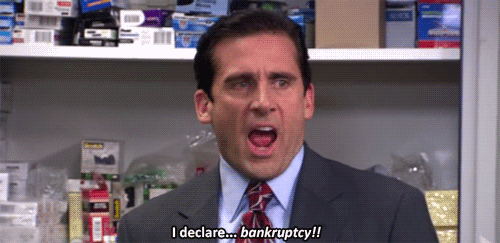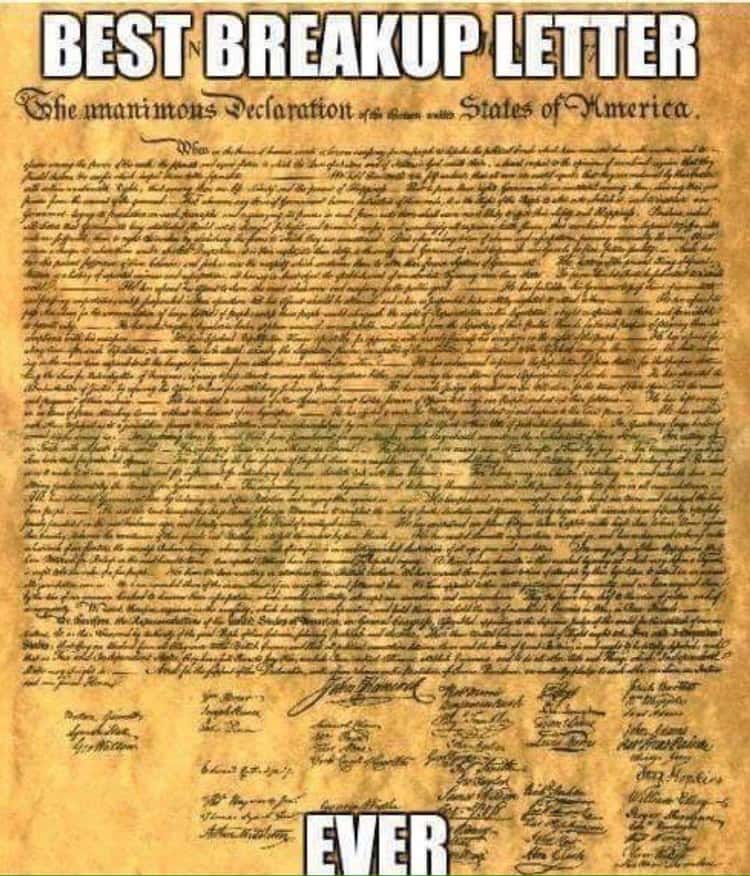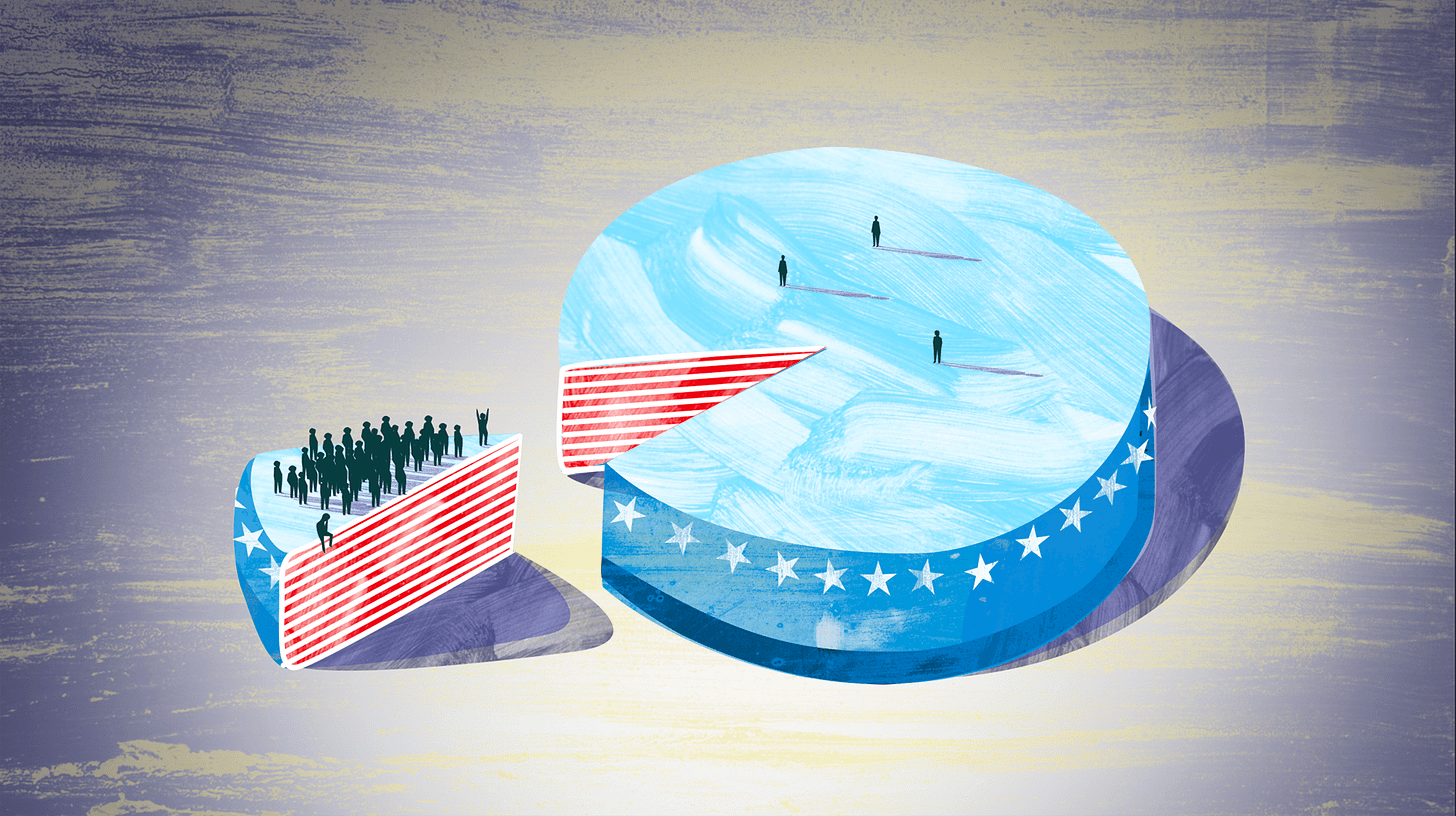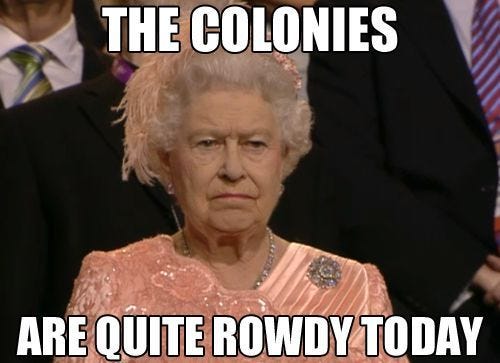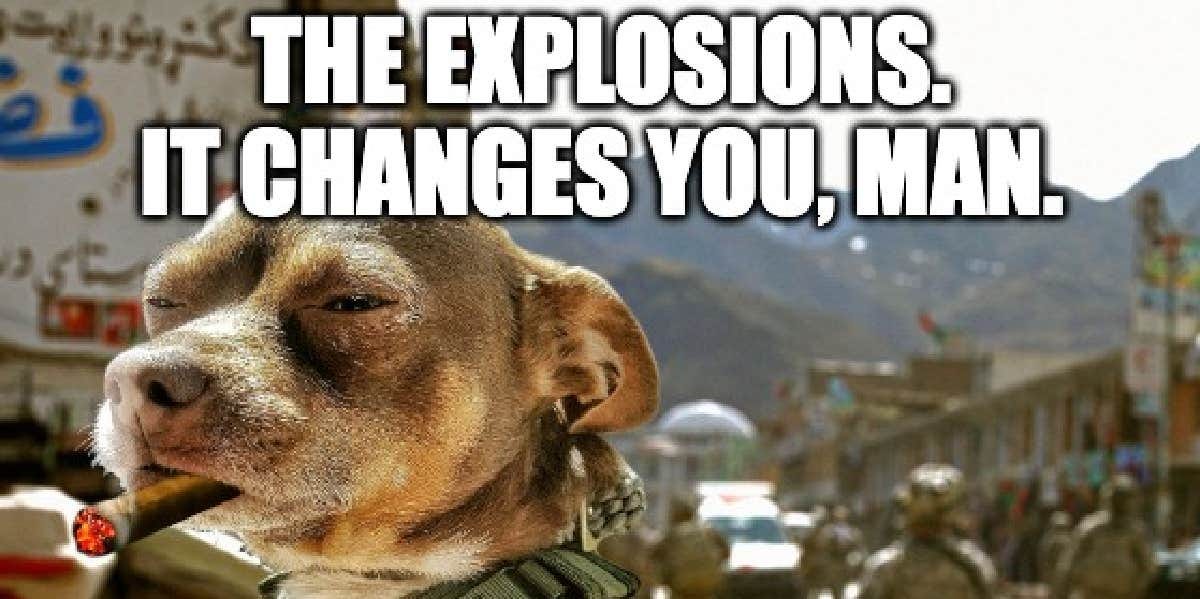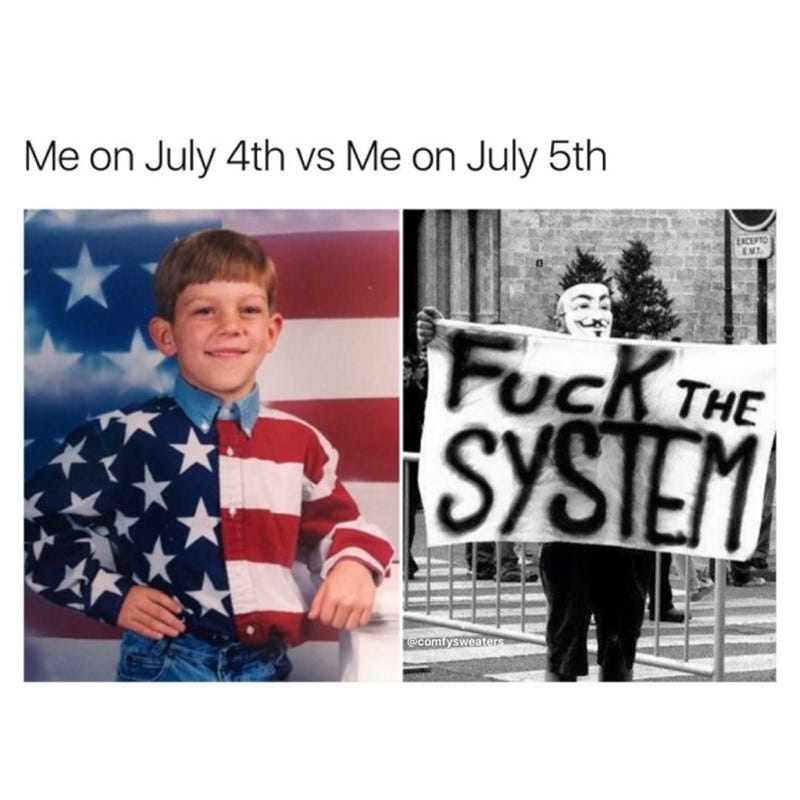How Do We Hold These Truths?
Ruminations, hot dogs, and memes as we celebrate American independence
Independence Day brings many feelings, most of them different strains of gleeful anticipation. Beer, explosives, and the best platitudes. All stitched together by a bottomless cache of superb memes.
As a dual citizen, I get to celebrate two things. (1) America loosing itself from the vile clutches of imperial oppression, and (2) the reduced British workload of estrangement from such a prickly and quarrelsome gaggle.
While each of my countries has played both insurgent and tyrant to shading degrees over time, they have come to largely mirror one another. Two enduring and consequential nations driven by common principles. Two peoples divided by a common language.
But dual citizenship doesn’t confuse me on July 4th. I get confused for other reasons. There is is a dissonance which rings in my ears. While I suspect others hear it too, I don’t dare impose or ascribe it to anyone else.
It’s my dissonance. It might reflect some broad truth, or it might just be a product of my own socialization, experiences, and beliefs. Or early onset madness.
But for whatever reason, I have grown to deeply like and deeply dislike this day.
What I like about Independence Day is the chaos.
Everyone has a one-day license to create molten mayhem. You don’t need to justify it. No training. No license required. No insurance needed. And certainly no lower limit on intelligence. ‘Splode ‘em if you got ‘em.
Don’t talk to me about safety. We’ll count casualties later. That is a Tomorrow Guy problem. Today is about flaming propellant. And by God, we need some accidents. They serve a purpose.
This is an annual culling of the gene pool, with many who should never breed generously removing themselves. Their chicanery is a bonus. A gift of freedom.
If you run out of fireworks, don’t worry. I mean, you should keep a reserve of explosives for everyday use, like I’ve most always done. But if you’re out just proceed a half mile in any direction, and you’ll find a vendor to hock you some more. You can buy ten explosions for less than the price of the ten bandages you’ll need afterward.
I find the rollicking loudness and hair band sensibility of July 4th irresistible.
Congregations. Music thumping from car stereos. The din of conversation audible from down the street, punctuated with laughter. Weaponized garden hoses. Weaponized crab apples. Fun everywhere.
Mobs of people flooding barbecue grills, seized with the performative heating of various shaped and encased preservatives containing no meat, and quite possibly no food.
Wholesale vats of condiments crowding the narrow surface of a folding picnic table with a wobbly leg, the handle of a rubber spatula protruding above each massive jar to double as a high-throughput helipad for circulating flies.
Popsicles. Bags of ice replenishing coolers. Motorbikes and jet ski motors providing a bass line of freedom. A glimmering moon drifting across sultry skies ebbing with a brief calm, as if catching a breather before being set alight.
Chaos is joy. A rejection of constraints. An expression of free will.
But I also don’t like July 4th. And the reason I don’t is the chaos.
As in, the intellectual chaos of divergence between ideal and real. Between rhetoric and reality.
We style July 4th as a celebration of our national birth. The moment we became free. A defining moment in world history, when a collection of monied miscreants went further than flipping their sovereign the bird. Their words and deeds popularized big new ideas across a global and increasingly restless audience.
Like the idea we all have natural rights we’re born possessing. Like the idea of government as counterpart in a social contract, meaning we consent to limits on individual behavior in exchange for protection and order.
This was a wholesale revision of prior doctrines regarding individuals as subjects possessing only those rights given by someone more powerful.
Still, we did not magically become independent on July 4, 1776. Simply declaring something doesn’t make it so.
To secure independence, there was a war to win and a government to fashion from whole cloth. And even when that was done, we remained a slave state for well more than a century, actively defiling the doctrines we’d pioneered.
So, July 4 is not so much a celebration of independence as an announcement that freedom was on the way. It was a way of saying "this is how freedom is defined, and we're going to make it real."
But in the years since, we've understood it's not something we're ever finished doing. It's a perpetual undertaking.
Which makes July 4th feel chaotic. Because we're recognizing our commitment to a certain set of ideals, and simultaneously our failure to make those ideals real.
The less I think about July 4th as a commemoration of actual freedom and allow it to be about ideals comprising freedom, the less my head hurts.
Because as a celebration of the ideals captured in the Declaration of Independence, July 4th makes a lot more sense.
The hot dogs, each identical to the next, symbolize equality as a natural right. The chain link fence signifies the role of government as protector of rights, specifically life, liberty, and the pursuit of happiness.
Bottle rockets evoke the conflict and debate of peaceful representation, which we demand in exchange for our taxes, including the sales tax we paid on those very fireworks.
The way we hang out together symbolizes hanging together. The colonies chose to stand unified in their declaration rather than negotiate separately with King George. Despite massive cultural, socioeconomic, and ideological differences, they stood in solidarity when it mattered most.
Just as we stand together on July 4th despite our differences.
But something does have me a little worried these days.
Like most Americans, I've always noticed the daylight between the ideals of the Declaration of Independence and the reality of life in the republic it birthed.
In various ways, we don't have equality. We're not sure government should protect natural rights, or even exist at all. Hell, we're not even agreed about those natural rights or the existence of a Creator to endow them.
We're not well represented. We're not hanging together. As for the social contract, all parties are in breach.
But this isn’t what worries me. We’ve long understood the journey to freedom through self-government would take time, and require us to extemporize and pilot and persevere through a nettlesome thicket of resistance.
The unsettling part is that we don't seem to agree anymore about how to navigate that thicket. Where once we had common ideals to guide us, we now seem to be disowning those ideals.
We're not all convinced we should have equality. In fact, when it comes to economic equality, or even the chance to achieve it, many of us are opposed. Most of us are at least unwittingly supporting people and laws that feed growing inequality.
The role of government in securing our rights is up for debate. We're not sure it is capable, or that it even understands our rights accurately. Which, in a nation of rugged individuality, can make anarchy seem less attractive than it actually is.
Representation has eroded. Arguably, we're not much better off than we were on July 3rd, 1776. Popular opinion exists, and is often clear on this issue or that. But it doesn’t translate into law or policy. This erodes trust in government, which introduces another barrier to effective representation.
Do you feel your congressional representative is listening to you? Do you feel your voice is heard at any level of government?
Many are saying no.
I’ll tell you who feels seen and heard in the halls of government. It’s not we gentle descendants of liberty’s ideal conception. As it stands, the meek are not inheriting the Earth.
Funders feel heard. Lobbyists. Donors. Investors. People and corporations who are funding elections, the investors who are funding those people and corporations, and the cat’s paws making it all happen. They feel heard.
Government officials spend three quarters of their time interacting with this sliver of America. And this sliver shapes legislative priorities, influences philosophical directions, and charts financial flows.
The rest of us are not represented. And it's our own fault. We've bought into the idea of unlimited money in elections, over many strong and well-founded objections. Money makes elections contests of distortion rather than contests of fact and vision. The side able to better distort wins.
All that money and distortion have done a great job of dividing us. So much so that we’re not convinced hanging together is the right thing anymore.
When someone wants to get something done, they marshal some money and make a separate deal with government, as a single colony might have done with King George. It’s exactly what we declared was a problem big enough to justify a rebellion. It’s just wearing nicer suits.
And we’re definitely not convinced about the idea of a social contract. Most of us don’t want to curtail our behavior, certainly not because government says so. And government certainly doesn’t seem committed to maintaining sufficient order that our rights are commonly respected.
The closest thing we have to an absolute right these days is the right of corporate boards to do whatever they want so long as they couch it in terms of shareholder interest.
July 4th is our celebration of what we together believe. Things that unify us so we move in the same direction when the chips are down.
When we stop being unified in those things, the reality of freedom becomes more distant.
That we might someday approximate the ideals of the Declaration of Independence is the best we can hope for. But at this moment we lack consensus on the goal of doing so.
One thing we don't agree on at all is the relative durability of freedom. Some believe it will always endure because its elemental strength. The power and passion of self-determination.
Others believe it is fragile. Easily eroded by forces of deception. Under attack from the moment it is born, a grave danger to those who hoard power.
I include myself in that latter group. Which is why I think we have to proactively and intentionally guard freedom.
Luckily, we have a playbook for doing that. It's called the Declaration of Independence.
Today, we celebrate it. We feast on whatever appears in our path while mosquitoes feast on us. We slather ourselves with sunscreen and ruin the lawn with hours of wiffleball and horseshoes. We party. We blow things up. We terrify house pets with hour upon hour of merciless pyrotechnics.
We celebrate not the elusive, ever-evolving, tale-twisting arrival of perfect freedom as a lived condition.
We celebrate the ideals of independence. The things we aspire to make real.
Or, we don’t celebrate the ideals, or want to make them real. Or even believe in the framework we’ve built to do so. But we party anyway, because it’s what you do so long as you have the freedom to do it.
Most likely, we celebrate without giving all this a lot of thought.
Might there come a day when we simply gorge ourselves on potato salad and blow stuff up without knowing what we’re celebrating?
It’s possible that day has already arrived. It’s possible my dissonance is a result of clinging to things that died long ago. And deep down, in places I don’t talk about at a 4th of July party, knowing it.
Do we still hold these truths to be self-evident? If not, how do we hold them?
I don’t know. But I do know it’s time to close this down. That six pack ain’t gonna chug itself.
TC is an independent writer.










